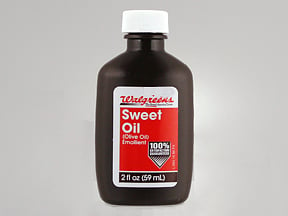
Sweet Oil Coupons & Savings Card – Discount Prices from $6.59
My prescription
Edit
118ML, Sweet Oil (1 Bottle)
Select pharmacy

Albertsons
$6.59
COUPON PRICE
Walgreens
$6.59
COUPON PRICEFree Sweet Oil Savings Card

Albertsons
$6.59
Show this coupon to your pharmacist
ID
LH68F66415
PCN
HT
BIN
011867
GRP
LABH001
This coupon is not insurance
Our coupons are free to use. Before paying, show the pharmacist your Sweet Oil savings card to get your free discount. Use our filters below to edit the prescription box to match your needs. The Sweet Oil prices will update based on your prescription needs. Above our Sweet Oil coupons, you can change your location to see pharmacy prices and costs in other areas. We're here to help you buy Sweet Oil at the lowest price with our prescription discount card.
Our coupons are free to use. Before paying, show the pharmacist your Sweet Oil savings card to get your free discount. Use our filters below to edit the prescription box to match your needs. The Sweet Oil prices will update based on your prescription needs. Above our Sweet Oil coupons, you can change your location to see pharmacy prices and costs in other areas. We're here to help you buy Sweet Oil at the lowest price with our prescription discount card.
